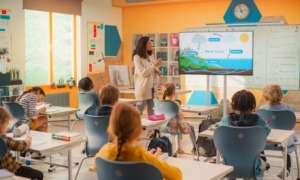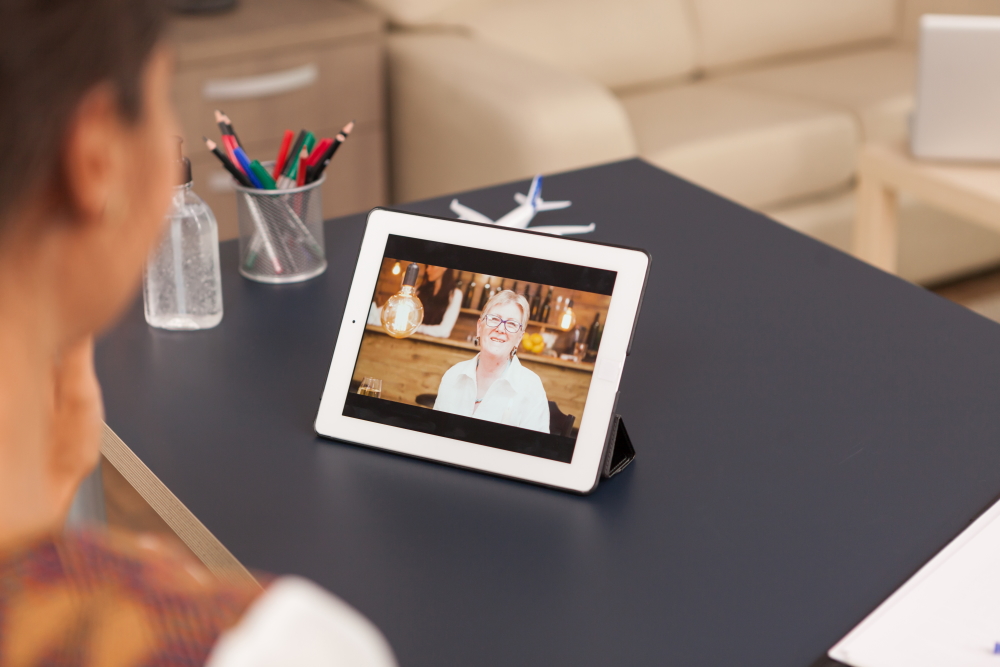
DC Studio/Shutterstock
Video call on a tablet computer.
Stay-at-home orders have left many of us with cabin fever. Most people only leave their homes to buy groceries or to get some exercise. I personally have not seen many of my family members and friends since December, and I miss them dearly.
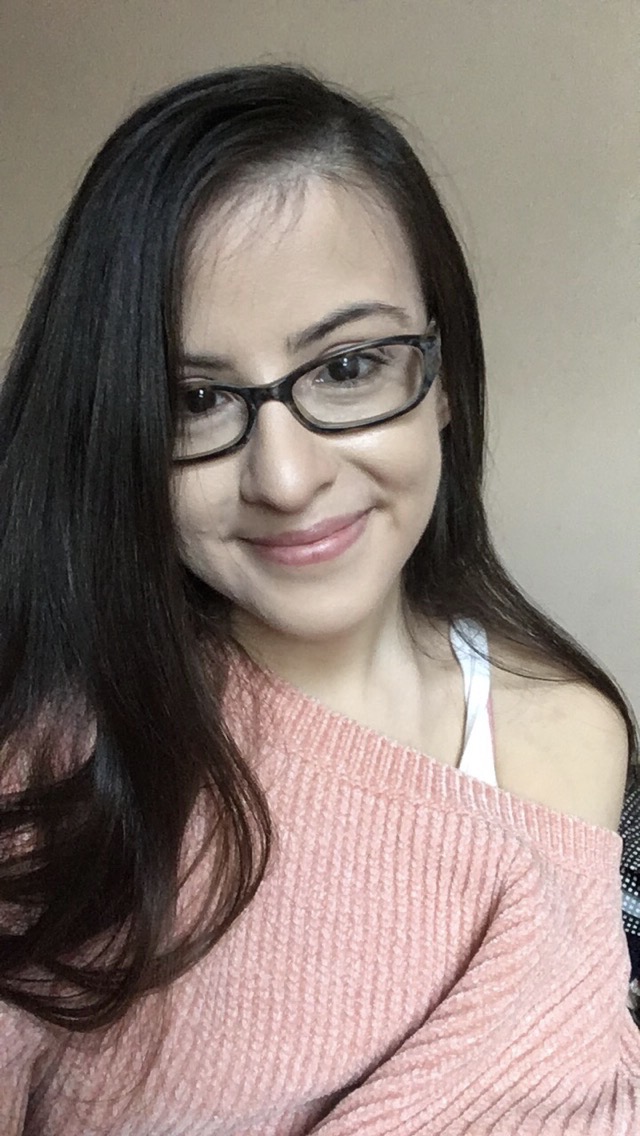
Christiana Nisi Walker
Although stay-at-home requirements are being lifted in phases, many people are choosing to remain indoors until the coast is clear. This decision may be wise, but it does come at the cost of social interaction. I spoke to three young people who said they were doing what they could to stay in contact with loved ones.
Christiana Nisi Walker is 27, and lives in Reading, Pennsylvania. Walker, who lives with spina bifida and scoliosis, said that growing up, she didn’t really pay attention to her disability because her family treated her “normally,” like her siblings. These days she posts on social media about disability law and the belief that people can be disabled and beautiful.
For her social distancing has had a positive impact on her relationship, while others have found it more challenging.
“I’ve only really had to maintain one relationship besides the people I live with, and that relationship has gotten stronger because it’s long distance anyway,” Walker said. “But, with the pandemic, he was home so much more because of quarantine, and we got to spend so much more time together.”
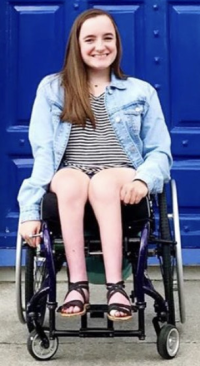
Rosie Dunn
Rosie Dunn, who is 20 and lives in Nashville, Tennessee, had to leave school in the middle of the semester. Dunn, who goes by the handle Rosie Roaming online, has a travel blog, rosieroaming.com, where she writes about travelling and life while paraplegic and using a wheelchair. She told me that the hardest part of the pandemic has been not knowing if she can return to her college campus and live in the dorms, since she has a higher risk of catching the virus.
“I absolutely love everything about my college experience, and it would be really hard for me to have to take time off from school and being with my friends because I’m high risk,” she said. “I live a very independent life, and my disability doesn’t stop me from doing a whole lot. However, the pandemic might change this — it’s so out of control and there’s so much that is unknown for me. That is the hardest part of it all.”
“I left college to come home for spring break and never went back,” she said. “We were told over spring break that our university would be doing online learning for the rest of the semester. Keeping in constant contact with my friends, like I would have if I was at school, is what helped me get through the second half of the semester. I am so grateful for the internet and the ability to video call with friends and other loved ones.”

Leena
Leena, who declined to use her last name, is 20 years old and lives in New York. She was diagnosed with cerebral palsy at 2 years old, and now hopes to inspire people by changing their perspectives on people with disabilities. She worries about the mental health of people with disabilities during this time.
“People with disabilities may be more susceptible to the virus due to underlying health issues. So, it’s definitely scarier for us with disabilities. I also think that many of us are cooped up at home and are starting to become depressed,” she said.
She is still able to stay in contact with the people she cares about. Luckily she is not at home alone. “I live with my family and I keep in touch with friends via social media.”
For young people with disabilities, social isolation can be a burden, since they often depend on interaction for growth and healing. As we continue to take the necessary precautions, don’t forget to reach out to friends and family in whatever way you can. Stay active physically and socially, as they often go hand in hand when it comes to our health.
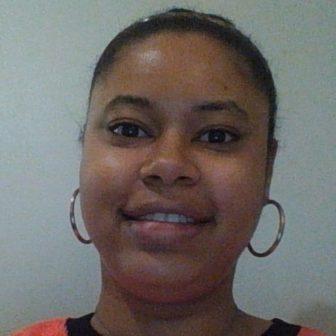 If you would like to contribute to this column and share your story about life during quarantine with a disabled youth, email me at Deandra@csjournalism.org.
If you would like to contribute to this column and share your story about life during quarantine with a disabled youth, email me at Deandra@csjournalism.org.
Deandra Mouzon is a Georgia-based journalist who received a B.A. in journalism from CUNY’s York College. Currently she is working on a publication about youth with disabilities.




